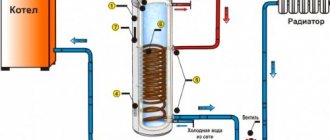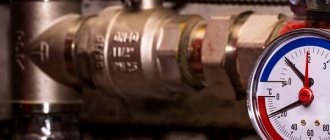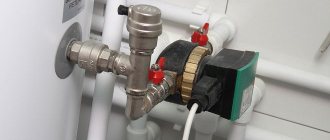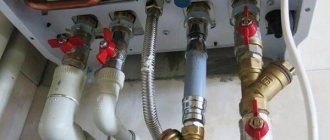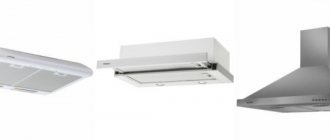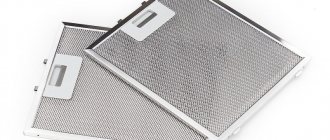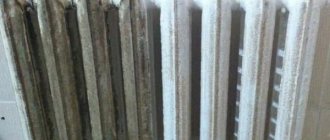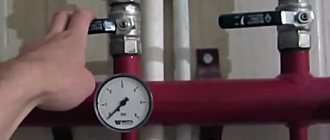How to understand that the water in the heating system does not meet standards
Water from reservoirs, wells and city water pipelines is guaranteed to have high hardness so that it can be used directly in the boiler, only with different indicators. Any of them is dangerous for the boiler and water heating equipment.
You can verify this yourself by performing express tests using test strips to determine water hardness. They can be purchased at hardware stores or pet stores.
Paper indicators are treated with reagents; when they get into water, they acquire a certain color, which is compared with a standard scale.
Water hardness is determined in degrees (°F). According to GOST No. 31865 of 2012, the following hardness indicators are established by which natural water is classified:
- not higher than 2°F - soft;
- not higher than 10°F - average;
- above 10°F - extremely hard.
For use in boilers, water with a hardness of 2-5°F is already dangerous because it promotes scale formation, so it will need to be purified with water softening.
Types of water softening filters
The domestic market is overflowing with offers for water purification filters, both domestic and Western-made. The user needs to understand which softener is best suited for the boiler and autonomous heating system. Next, you will need to select the most appropriate purification method for the initial composition of the water.
Polyphosphate filter
The most affordable and cheapest water softening filter for a boiler, and at the same time a very effective cleaning option. The ion exchange polyphosphate filter module consists of the following basic elements:
- Plastic container in the form of a flask, transparent;
- protective cover for cartridge replacement;
- drainage;
- softening chemical reagent—polyphosphate salt.
Raw or tap water enters the filter container, circulates through a chemical reagent in the form of polyphosphate salt crystals and is impregnated with sodium polyphosphates, forming a phosphate film. It envelops hardness salts, thereby neutralizing their scale-forming properties and protecting boiler heating surfaces from salt deposition.
Polyphosphate is a toxic substance, so after contact with it, water becomes undrinkable. These softeners must be used carefully in hot water supply systems, since due to possible leaks in the structure, water may enter the hot water supply or hot water supply line.
The service life of polyphosphate filters, or rather dissolving polyphosphate salt, is short. The standard consumption of the reagent is 5 grams per 1 ton of water. The reagent is replaced when its volume in the flask is halved. This happens after about six months of filter operation. The cost of polyphosphate ion exchange filters ranges from 500-1400 rubles, and replacing polyphosphates will cost the owner up to 350 rubles.
Magnetic filter
This is the most expensive and effective cleaning method. If you install a compact permanent magnetic filter in front of the boiler, you will not need to constantly regenerate it or change the filter material. It cannot soften water, that is, remove hardness salts from it.
The principle of its operation is different and is based on the transformative effect of a magnetic field on water, as a result of which its structure changes briefly.
Passing through the magnetic filter element, boiler water changes its own physical qualities, while the crystallization process when heating the liquid occurs more intensely, but not on the surface of the heated boiler walls, but in the water column. In connection with this, sludge is formed, which is easily removed by blowing or in a mud pan in front of the boiler.
A characteristic feature of this method of softening boiler water is the temporary nature of magnetization of water, therefore such a filter is installed as close as possible to the boiler unit.
The advantage of this treatment is that when water passes through a magnetic filter, it does not become technical and harmful to humans, therefore it is applicable in double-circuit boilers with hot water heating.
The service life of such softeners is practically unlimited, since the device has no moving or rubbing parts. The cost of installation ranges from 1,500 to 25,000 rubles, depending on the brand, design and hourly productivity of purified water.
Electromagnetic
At a high temperature of hot water in the boiler circuit and a high circulation speed, complete separation of hardness salts from water only with the help of magnetic treatment often does not occur, especially for natural waters with high hardness. To enhance the magnetic effect, electrical treatment of the water is added by placing a specialized electrical treatment on the magnet.
Such a device also functions by treating the source with a magnetic force field, the strength of which is regulated by an effective electrical processor. This pair makes it possible to get a longer lasting effect.
The operation of such a device does not depend on pressure changes and temperature conditions. Transforming hardness salts not only do not harm the boiler, but also act as softening agents for previously deposited scale. Installation cost: from 5,000 to 30,000 rubles.
A little theory
As a rule, 4th generation gas treatment systems use two types of gas purification elements:
- Coarse cleaning or liquid phase (located either in the evaporator reducer or in the remote valve in front of it);
- Fine cleaning or gas phase (located on the gas hose after the reducer)
Both are used to purify gas from all kinds of contaminants and impurities that may be contained in the propane-butane mixture.
The function of the coarse filter is to prevent all kinds of debris from entering the reducer-evaporator, while the fine filter element cleans the gas mixture after the reducer and before it enters the nozzles.
It should be noted that the coarse cleaning element is quite similar in structure to gasoline, and the fine phase is a cartridge with rubber seals.
Models
Replacing gas filters with 4th generation gas filters first involves selecting and purchasing those elements that we will replace. If everything is quite simple with the liquid phase filter element, then with the gas phase purification element there are several options.
The simplest fine filter consists of polyester or paper; it costs quite a bit, but it clogs quickly. Most often, such a model does not last more than 6-7 thousand kilometers, and will require premature replacement.
A slightly more expensive model has a sump and is equipped with a polypropylene cartridge. This cleaning element will last 10,000 km. and will prevent gas impurities from entering the injectors. Elements of this type of filtration are the most optimal models for installation.
The most expensive and high-quality element for cleaning the fine phase is the separator. Such an element inside is equipped with some kind of channels, which forces the gas to move in a spiral (like a centrifuge); at the moment of passage, all impurities of the gas mixture fall on the walls of the settling tank and then flow to the bottom.
The best filters for the boiler
Before making a choice, you need to refer to the factory instructions and familiarize yourself with what the manufacturer offers as water treatment for the boiler. Then, in any SES laboratory or even from a water supply company, you need to take complete results of an analysis of the water that will be used to feed the boiler and heating networks. Before you begin selecting possible modifications, choose from a line of boiler or water heater filters.
In addition, when choosing, experts also advise paying attention to the following parameters:
- Productivity - determines the hourly volume of purified water, m3/hour.
- Dimensions and installation area so that the purifier can be integrated into the existing free space in the boiler room.
- Thread diameter - it must correspond to the diameter of the heating systems.
- Brand - it is safer to purchase a filter from a popular manufacturer and in branded stores. Unfortunately, there are many counterfeits in the retail chain, and in addition, in branded stores you can issue a reliable guarantee and consult on the procedure for using the filter.
Magnetic filter Aquamax XCAL MEGAMAX
Aquamax XCAL MEGAMAX 1/2″ is an Italian highly efficient magnetic anti-scale filter for boilers and boilers. It cleans the heating surfaces of boilers from limestone formations. Designed for heat supply systems with high circulation rates.
The MEGAMAX magnetic softener is made of first-class non-corrosive steel and is considered not dangerous to people. The device does not require changing filter materials. Suitable for boilers with 1/2" piping and can purify water 0.8 m3/hour. Price: 1860 rub.
Phosphate filter Ecosoft SCALEX 200
The filter for the heating boiler Ecosoft SCALEX 200 prevents the formation of scale in heating systems and contains an ecological filter media that does not have polyphosphate, which allows its use not only in heating boilers, but also in hot water supply systems.
The SCALEX 200 filter has the function of chemical water purification and performs mechanical purification of suspended solids and rust products up to 100 microns in size.
Ecosoft SCALEX 200 does not remove hardness salts from make-up water, but has a comprehensive effect on them thanks to the simultaneous use of 3 protection mechanisms:
- Stopping the growth of hardness salt crystals.
- Destruction of the beginnings of foci of scale crystallization.
- Prevents the connection of scale-forming crystals with each other.
The filter can operate without replacing the filter material for 6 months. Cost 1260 rub.
Anion filter SVOD-AS sbb10
A powerful softener can be used not only in domestic heat and power engineering, but also in industrial boiler houses. The device purifies water from hardness salts, heavy metals and any suspended pollutants and impurities.
Water is processed in a special anion exchange cartridge, the reagent of which is processed using a special technology with chemically active components. As a result, Ca and Mg ions in the water are replaced by Na ions, thereby creating easily soluble sodium salts that do not deposit on hot boiler surfaces.
The filter housing is made of plastic that can withstand medium pressure up to 6 atm. One cartridge can process 262 m3 of water and has a shelf life of three years. Price 6700 rub.
Magnetic filter Caleffi XS
The Italian filter is designed for boiler water treatment and combines two types of cleaning: mechanical and magnetic, using a neodymium magnet and a transparent sludge collection chamber to visually control the process. The device can operate in an environment at a pressure of 3 atm. and hot water temperature 90 C. Hourly productivity for make-up water is 3.5 m3/hour. Warranty - three years. Price: 5600 rub.
What are filters for heating systems - types
The following types of heating filters are distinguished:
- Rough or pre-cleaning. They must be installed at the stage of connecting to the central water supply (if such a possibility exists). The most reliable model is a sedimentation tank with a flask for the accumulation of pollutants.
- Fine cleaning. Detains contaminants up to 100 microns in size.
- Magnetic devices. They attract metallized components - chips, rust, etc.
Let's take a closer look at each type.
Coarse filters are designed to retain large contaminants and can be installed simultaneously in several areas of the system. Presented in the following modifications:
- Sump tank: connects to the central heating system, at branch points (can be flanged, welded, threaded),
- Settler filter: a more modern model, dirt is retained in a special flask made of heat-resistant plastic (thanks to the transparency of the flask, you can control its filling level).
- Fine cleaning – installed as an addition to coarse cleaning devices. The main impact in such devices is taken by the square or cylindrical cassettes installed inside. Such devices can be attached to the wall, which is especially important for plastic pipes.
- Magnetic filters - consist of two magnets with opposite poles. Metal waste entering a magnetic field is attracted and retained by such a device. The design can also be equipped with a dirt filter. Magnetic models can be either removable and quite easily installed on the pipe, or non-removable. Recommended as an additional cleaning device.
Connection to the heating system
In order to independently install a filter in the heating system, carefully study the manufacturer’s instructions and the wiring diagram. Typically, boiler filters have threaded connections: ½ or ¾ inches.
Filter connection location in the heating system
It is installed at the inlet in front of the heating boiler on the return line of the heating system. The distance to the boiler should not exceed 2 meters.
Pre-prepare the filter for installation. For example, a polyphosphate filter needs to be washed to remove small particles of filler, and a cation exchanger needs to be regenerated, that is, pass a saline solution through it.
Next, install the filter using a threaded connection, sealing it with fum tape. Before placement, pay attention to the direction of movement of the coolant, the permissible temperature and pressure of the water passed through. To be able to service the filter, it is cut off from the heating return line with two valves and a bypass line is made.
What is suitable for a double-circuit boiler?
Let's start by looking at the features of a double-circuit boiler. Should the filter in front of the double-circuit boiler be some kind of special or not? Dual-circuit means that it has not one type of heating, but two. It heats the water, not only that which is in the heating system, but also that which is supplied to the house as hot water. How does this affect filter selection? Well, first of all, because the quality of the water is still potable, because... The family will use hot water in the kitchen and for bathing. This means that the quality of cleaning must be appropriate. The second feature is greater water consumption, because... it serves two purposes at once, which means the filter cleaner should be more powerful.
Therefore, for such boilers it is necessary to either install one more powerful polyphosphate filter, or combine two devices - electromagnetic and ion exchange, each for its own circuit.
What about the heating system?
Heating can be with a hot water boiler, it can be gas, it can be steam. What kind of filter should there be in the heating system in front of the gas boiler? This is where knowledge about electromagnetic advantages comes in handy. An electromagnetic softener is most suitable for a gas hot water boiler. Safe to maintain, absolutely unpretentious and easy to use, the filter for cleaning the heating system will purify the water very efficiently to the desired degree of softness. And if you put it in combination with a coarse cleaner, then they will work for many years. After all, the magnetic effect is practically not lost over the years.
Alternative Mitigation Methods
In fact, in well-executed individual heating systems, leaks in the system are very small, and water is practically not replenished throughout the entire heating season. In such a situation, an alternative way to install water purification systems may be to purchase and fill the circuit with already purified water.
To do this, the user can use the following options:
- purchase purified water of the required volume, purified in powerful water treatment plants, for example, in industrial boiler houses;
- purchase distilled water in a retail chain;
- pour boiled water prepared at home.
All boiler manufacturers must indicate in the technical documentation the permissible composition of water for the boiler and methods of its preparation. It is best to follow these recommendations, then the owner will not have problems with either the boiler or warranty service. It is prohibited to independently add any reagents to the water: vinegar, alkali or acids for pre-boiler water purification.

